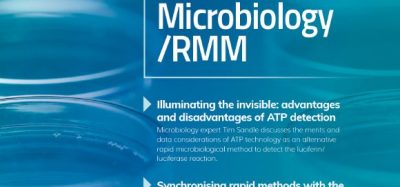Hyglos extends its endotoxin detection portfolio and introduces EndoZyme® – enhanced recombinant Factor C (rFC) Assay
Posted: 17 January 2013 | Hyglos | No comments yet
Hyglos has announced the commercial launch of EndoZyme®, a homogeneous fluorescence microplate assay using recombinant Factor C derived from horseshoe crab, for measuring endotoxin (Lipopolysaccharides, LPS) in pharmaceuticals, biologics and medical equipment.
Taking up on the pioneering work published by the Japanese scientists around Prof. Sadaaki Iwanaga, the test developers at Hyglos have been able to finalize an improved recombinant Factor C (rFC) assay.
Recombinant factor C, which is the essential part of EndoZyme®, is the endotoxin-specific principal receptor in the LAL enzyme cascade. In the assay recombinant Factor C is activated by any endotoxin present in the sample, recombinant Factor C enzymatically cleaves a synthetic substrate resulting in a fluorescence signal.
EndoZyme® at a glance:
- Improved sensitivity and measurement range 0.005 EU/ml to 50 EU/ml
- Excellent correlation to LAL
- No false-positive glucan reaction due to endotoxin-specific recombinant technology
- Reliability and lot-to-lot consistency
- No animal material, therefore saving the diminishing horseshoe crab population
Lipopolysaccharides (LPS), or endotoxins, are biologically active components (toxins) of the outer cell membrane of all Gram-negative bacteria. Presence of endotoxins in the blood stream causes a triggering of the signaling cascade and may lead to endotoxic shock. In production of parental drugs, infusions and certain medical devices it is mandatory to control endotoxin.
About Hyglos and its Endotoxin Detection products:
Hyglos core competency is to exploit its proprietary phage-ligand technology in developing test solutions for research, manufacturing and clinical applications. With the 2011 introduction of EndoLISA®, the world’s first commercially available solid-phase based method for endotoxin detection, Hyglos paved the way for a new era in endotoxin testing. Thanks to its heterogeneous assay format, EndoLISA® is particularly suited for complex sample matrices. With the launch of EndoZyme®, Hyglos now also offers a homogeneous test format suitable for all less demanding samples.






